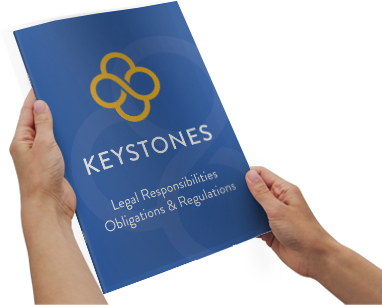What is the Best Way to Fund Your Buy to Let?
Setting up a limited company is increasingly being adopted as a tax-saving strategy. But it has its pitfalls, too.
It is almost exactly a year since the new stamp duty surcharge on buy-to-let properties came into effect. Contrary to the fears of many commentators, it has done little to stem the popularity of buy to let as an investment. It has, however, led to some imaginative strategies to minimise costs and find tax relief from sometimes unexpected angles.
As one of the foremost Romford letting agents, Keystones has seen a number of these strategies, and one that has gained particular traction over recent months is the idea of setting up a limited company to buy or hold the property.
What are the benefits?
Prior to last year’s changes, private landlords were able to deduct mortgage interest and allowable costs arising from the let property from their income, before calculating their tax burden. However, this is gradually changing, and when 2020 comes around, they will have to declare their entire rental income, pay tax on it, and then seek to claim back 20 percent.
If the property is owned by a limited company, on the other hand, all expenses can be written off for tax purposes, resulting in a significantly lower tax bill.
Surely that means and a higher net yield? Not necessarily.
Where’s the catch?
The biggest fly in the ointment is that if the property is owned by a limited company, it will change the mortgage offers that are on the table. According to Zoopla, the average two-bedroom property changes hands for around £192,000. Assuming a 75 percent loan to value mortgage, that amounts to a £144,000 loan. While a private individual might be able to get an interest-only mortgage with a rate of 1.9 percent, the same product would only be available at a rate of 3.4 percent for the limited company.
This puts a whole new perspective on the calculations. While the individual is paying £230 per month, the limited company is paying £409.
When you crunch the numbers, the tax benefits are outweighed by the increased mortgage payments, and the average landlord is around £1,300 per year better off if he keeps the property in his own name rather than setting up a limited company.
Economies of scale
It is only when a buy to let landlord starts to establish a significant property portfolio that the notion of owning the properties through a limited company starts to make sense. Of course, the exact figures depend on the size of property, the rental income, the mortgage deals available on the day and the landlord’s other sources of income. But the rule of thumb is that the more properties you own, the more sense the limited company route is likely to make.
On average, those owning two rental properties are still £800 per year better off keeping them in their own name, for three properties they are £200 better off and it is only when they own four properties that putting them into a limited company makes financial sense.
Of course, everyone’s financial circumstances are different, and with so many variables, the most important thing to do is to seek independent financial advice from an expert to decide what works best for you.
More from the Keystones learning hub
Keep updated with what's going on in your local area. Our latest news provides up-to-date information on everything regarding the local property market, for everyone including homebuyers, sellers, tenants, and landlords.
The Landlord Ombudsman & Renters Rights Bill – We Explain it All

3 June, 2025
It’s a great time to keep your UK Residential Buy to Let

20 May, 2025
Will the Romford Mosque increase property prices?

13 May, 2025

Come and see us face to face
Keystones are Open 6 days a week. Pop in, have a Tea or Coffee as we always have people on hand to help you.
Keystones Property
-
Keystones Property Collier Row
13 Clockhouse Lane, Collier Row, Romford, Essex, RM5 3PH, United Kingdom -
Email: [email protected]
-
Telephone: 01708 909 100





